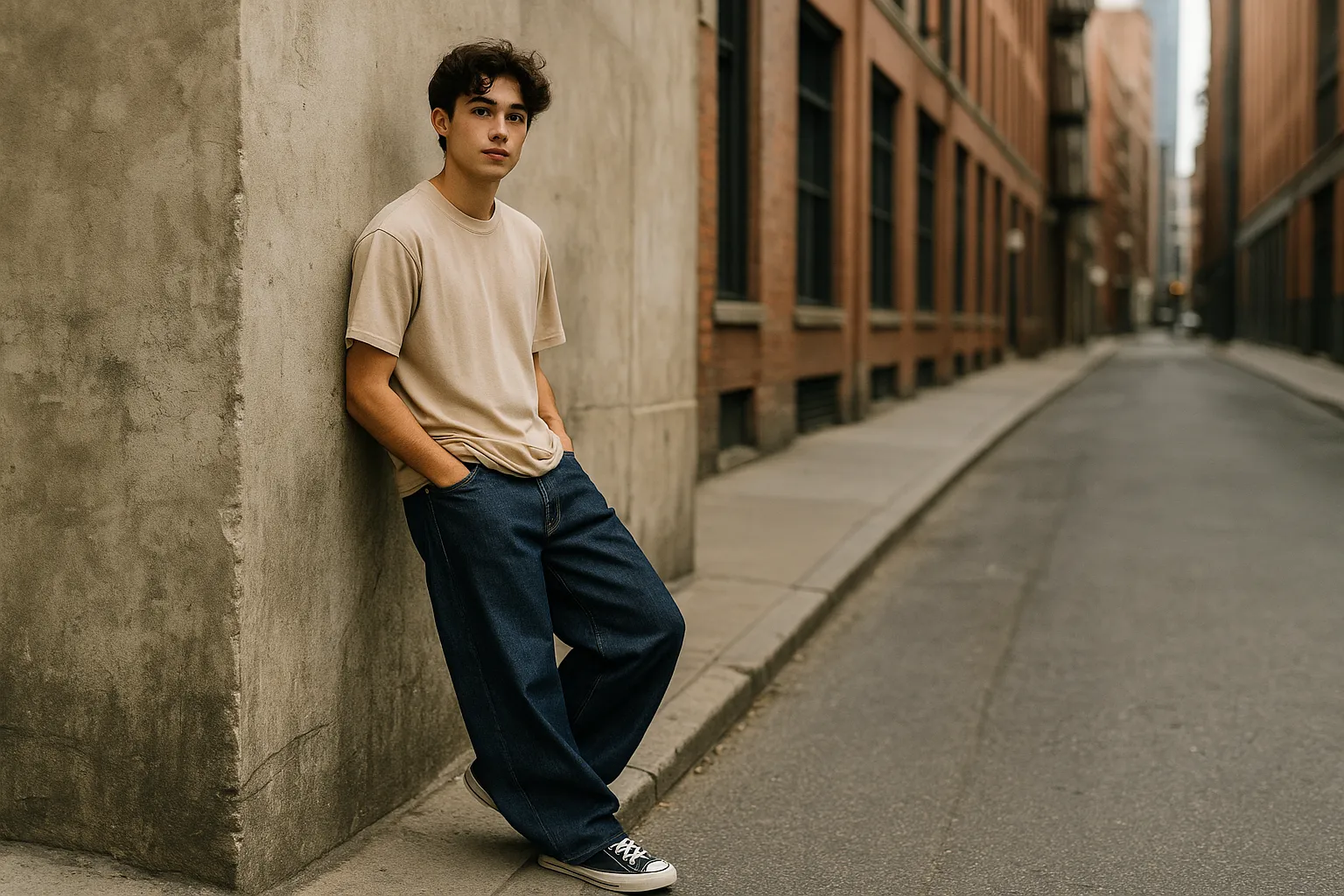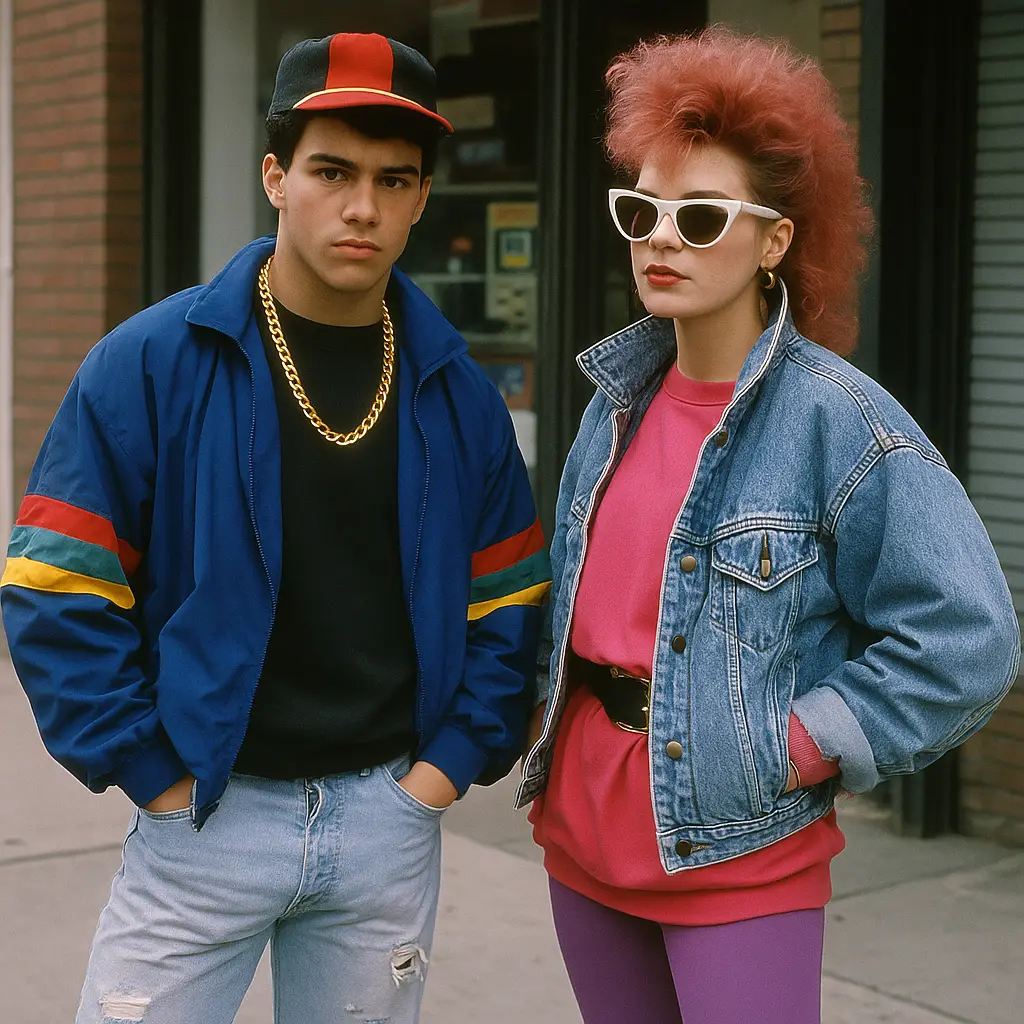The Evolution of Raw Denim: Fading into Personal Style
BY BoringMonday
May 20, 2025

Raw denim is more than just fabric — it's a canvas. For denim lovers, there's something magical about wearing a pair of jeans that evolve uniquely with time. The journey from dark, stiff fabric to soft, contrasted fades is a slow art of commitment, wear, and patience. This article explores how raw denim fades, what makes each pair unique, and how you can cultivate the perfect fade.
Understanding Raw Denim
What Is Raw Denim?
Raw denim, also known as dry denim, is denim fabric that has not been washed or treated after the dyeing process. Unlike pre-washed or distressed jeans, raw denim retains its deep indigo color and rigid texture.
Why Raw Denim Fades Matter
The appeal of raw denim lies in its ability to age gracefully. As you wear it, the denim molds to your body, and the indigo dye gradually fades with movement, friction, and time. Each fade tells a story of how and where you wore your jeans.
The Science Behind Fading
How Fading Happens
Fading occurs when the indigo dye wears off from areas exposed to repeated stress and movement. The yarns used in denim are typically rope-dyed, meaning the color doesn't penetrate the core, allowing the white threads to peek through as the surface indigo rubs away.
Factors Influencing Fades
Frequency of wear
Body shape and movement patterns
Climate and humidity
Type of activities (cycling, squatting, etc.)
Fabric weight and weave
Types of Fades
1. Whiskers
Lines that appear around the crotch and upper thigh area, mimicking natural creases.
2. Honeycombs
Back-of-the-knee lines caused by regular movement and bending.
3. Stacks
Fades at the ankle caused by denim stacking over footwear.
4. Thigh Fades
Wide fading across the thighs due to walking and friction.
5. Crotch and Seat Fades
High-stress areas that show quick and deep contrast.
Black Raw Denim Fades

While indigo denim fades to blue and white contrasts, black raw denim offers a more subtle transformation. Black fades often reveal gray undertones and may require more wear to achieve visible patterns. Due to the sulfur-based dye used in black denim, the fading process is slower and less vibrant but equally compelling.
Key Tips for Black Fades:
Choose sulfur-dyed over pigment-dyed denim for longevity
Wash less frequently to preserve contrasts
Before and After: Visual Transformations
Seeing raw denim fades before and after offers a glimpse into the aging process. Side-by-side comparisons of jeans worn for 6 months, 12 months, and 2 years highlight how each crease and mark develops into a visual diary.
Real-Life Examples
6 Months: Subtle whiskers, faint thigh fades
12 Months: Defined honeycombs, thigh and crotch definition
24 Months: High contrast, rich character, visible story
Achieving the Best Fades
How to Fade Raw Denim
Wear Daily: The more you wear, the more the fabric molds and fades
Avoid Washing Early: Wait 4–6 months before first wash
Spot Clean: Use damp cloths or small brush for minor stains
Wash Inside Out: When ready, use cold water and mild detergent
Common Mistakes to Avoid
Over-washing
Machine drying
Using bleach or harsh chemicals
Care and Maintenance
Washing Guidelines
First wash: after 4–6 months of consistent wear
Hand-wash or use gentle machine cycle
Air dry in shade to preserve dye
Storing Raw Denim
Hang or fold flat
Avoid damp or humid storage areas
Community and Culture
Raw denim isn't just about fashion — it's a subculture. Enthusiasts share their fade progress online, enter competitions, and celebrate their jeans as wearable art.
Fading Competitions
Events like the "Fade of the Year" by Denimio or Indigo Invitational reward the best fades across the world.
Online Communities
Reddit’s r/rawdenim
Denim-focused Discord groups
Style forums and Instagram pages
Conclusion
Raw denim fades are the product of time, care, and movement. Whether you're into high-contrast whiskers or soft, lived-in blacks, the fade process reflects your lifestyle. It’s fashion that doesn’t just express — it evolves.
So wear them hard. Wash them wisely. And let your denim tell your story.
Topics :
Style Meets Substance
Find pieces that move with you. Every article has a story — now wear one that speaks yours.

Recommendation Fashion

Fashion
Baggy Raw Denim: The Comeback of Wide-Leg Jeans
May 15, 2025

Fashion
80s Street Style Reloaded: Neon Grit, Athletic Cool, and Rebellious Layers
July 14, 2025

Fashion
Milan Fashion Week 2025 Street Style: A Fusion of Tradition and Innovation
March 28, 2025

Fashion
The Ultimate Guide to Women’s Streetwear Outfits
June 05, 2025